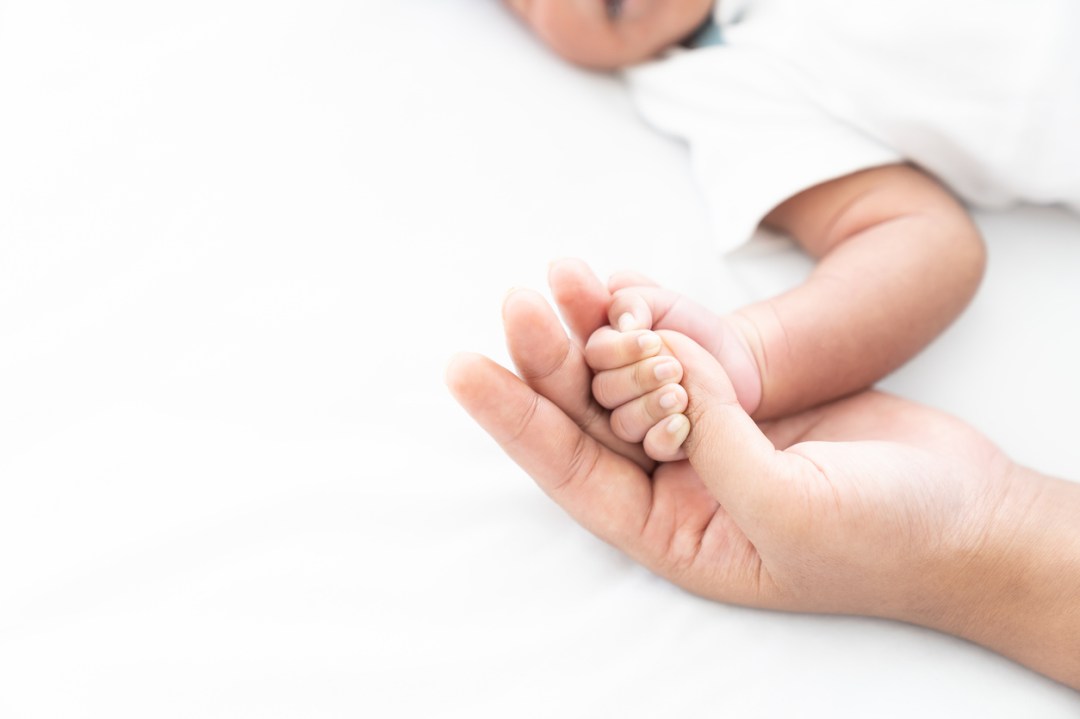Just over a year ago, I gave birth to my daughter. Labour was surprisingly smooth, unlike my previous emergency c-section. Once I started pushing, my daughter came quickly. I heard the reassuring sound of a newborn crying, and I felt the most indescribable sense of relief. Then, I started haemorrhaging. Before I knew it, I was under general anaesthetic in the operating room.
When I came to my senses a few hours later, my first thought was the hospital’s policy: no visitors after 8 p.m. I had 12 hours before being left alone overnight with my daughter in a room full of equally badly injured mothers. A sense of panic set in. The countdown had begun.
My nurse was too impatient to look after me; my hospital was too concerned with safeguarding issues to allow my mother or husband to stay. I started to feel ashamed of my weakness
I wish I could say the night went better than I had feared, but it didn’t. I was on a ward staffed not by midwives, but by nurses, many of whom I found out later were not actually trained to work with postpartum women. At this point, I had been awake for more than 48 hours and had lost a litre and a half of blood.
My husband left the hospital; the hours passed. Eventually I broke down sobbing, and I just couldn’t stop. I was so delirious that, to this day, I don’t remember holding or breastfeeding my daughter that night. What I do remember is a nurse telling me to stop crying because I was bothering everyone else. She’d already looked after my daughter for an hour so I could ‘rest’, she argued: what more did I want? When I started pleading for my husband to be allowed back, her response was to shout that she wasn’t responsible for hospital policy and leave. That was the last I saw of the woman who was supposed to ensure my wellbeing after childbirth.
This didn’t happen at an underfunded NHS hospital, but at the John Radcliffe in Oxford, which consistently ranks as one of the best in the country. And it didn’t happen because of widespread incompetence on the staff’s part – though I do think that leaving a delirious mother alone with a newborn was highly neglectful. Rather, it happened because of the misguided assumption that a baby is ultimately and fundamentally only the mother’s responsibility.
New mothers are meant to be helped. In the past, female relatives would assist with delivering and caring for a newborn child. Hospital birth changed this, and until the 1950-60s it was very normal for nurses to be the ones helping new mothers substantially during their hospital stay. Then, concerns about infant attachment – informed by the work of psychiatrists such as John Bowlby – encouraged hospitals to start practicing rooming-in, which is why it’s now common for newborns to be with their mothers until they are discharged, and for nurses to be less involved.
But what I got was the worst of both worlds. My nurse was too impatient to look after me; my hospital was too concerned with safeguarding issues to allow my mother or husband to stay. I started to feel ashamed of my physical and mental weakness. I started to feel like a burden. Many mothers experience a gnawing sense of guilt when asking for help: for me, the guilt started at the hospital and stays with me today.
I first tried to write these words after Theo Clarke’s birth trauma inquiry was published in May this year. Then I tried again in the summer, during the general election. I was appalled to see that the Conservative manifesto was the only one committing to provide postnatal appointments aimed at checking in on mothers, not just babies. I was angry. But it was too soon; the pain was too fresh. I just couldn’t put pen to paper.
After being in therapy for postpartum PTSD for months, I finally feel capable of writing about my experience. A month after I gave birth, Yvonne Christley was appointed Chief Nursing Officer at Oxford University Hospitals, which includes the John Radcliffe. Another four months later, she took up her post. During my birth reflection – a meeting with a maternity health professional that new parents are entitled to to discuss and understand what happened during labour and birth – I was told that she intends to amend the hospital’s visitor policy to allow overnight stays out of a concern for maternal mental health. I was also told that mine was one of hundreds of complaints in the past year.
I am still angry, but I choose to be hopeful. I choose to see this as a sign that, as a society, we are realising that having children is not just a personal choice. Motherhood is not a lifestyle, but a duty that’s meant to be shared by our family and wider community. We are deserving of help, especially in what are probably the most vulnerable moments of any woman’s life: those few hours and days that follow bringing a child into this world.








Comments